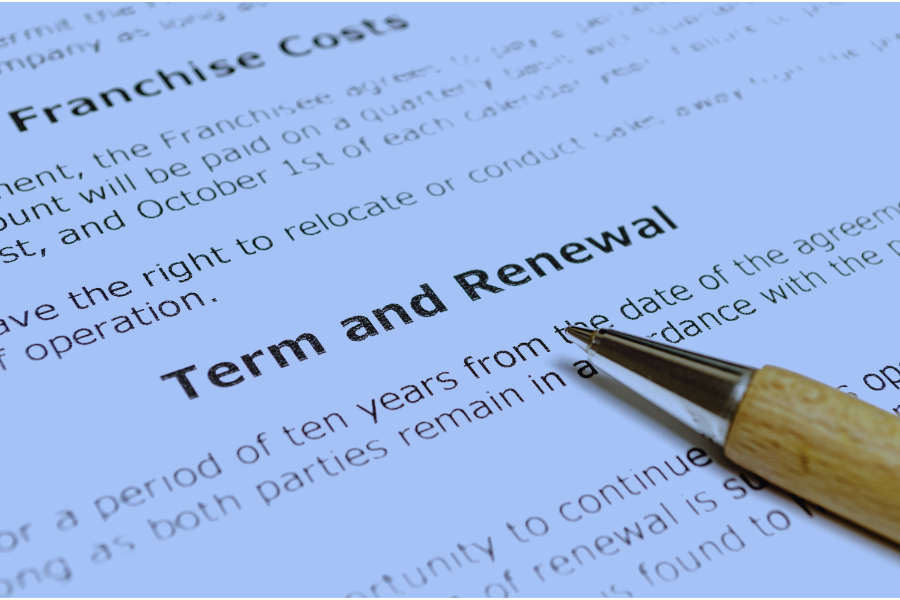Insurance policy renewal is crucial for ensuring continuous protection against various risks. By renewing a policy, the insured maintains uninterrupted coverage, while insurers gain the opportunity to reassess the terms to reflect any changes in risk or market conditions. But what is renewal in insurance, exactly? Why is it important? We know that navigating the renewal process can be highly confusing.
This process plays a crucial role in managing both individual and corporate risk, helping policyholders stay protected in a changing environment. Additionally, the renewal process provides an opportunity to update or adjust coverage as circumstances evolve, ensuring that the policy remains aligned with the policyholder’s current needs and goals.

What Is Renewal in Insurance?
Insurance renewal refers to the process of extending an existing insurance policy for another term. This process ensures the continuity of coverage, protecting policyholders from unexpected gaps.
During the renewal, the terms of the policy, such as coverage limits, premiums, and exclusions, are reviewed and may be updated to reflect changes in the policyholder’s risk profile or external factors like market conditions. Without renewal, the policy would expire, potentially leaving the insured without coverage in the event of a loss.
Understanding the Renewal Process
The insurance renewal process typically begins with a notification from the insurer, reminding the policyholder of the upcoming renewal. Typically, you will receive a notification about an upcoming renewal within 30-60 days before the policy expires. The insurer will communicate the details about the current coverage, the renewal premium, and instructions on how to renew it.
At this point, both parties review the current policy to ensure it still provides the necessary coverage. Policyholders are presented with renewal options, which may include maintaining the existing terms, requesting changes, or seeking coverage from a different provider.
During the review, necessary policy updates, such as adjustments to coverage or endorsements, are made based on the policyholder’s current situation. Premiums are recalculated based on factors like claims history and risk assessments, after which the policyholder confirms the renewal, and documentation is updated to reflect any changes.
Key Components of Insurance Renewal
Effective communication between the insurer and the policyholder is vital throughout the renewal process. Both parties must ensure that the terms and conditions of the policy are clearly understood and any changes are agreed upon. Key components of the renewal process include:
- Communication – clear, effective, and timely communication is crucial throughout the insurance renewal process. Insurers notify policyholders of the upcoming renewal, outlining any potential changes or updates to the policy.
- Policy Review – the insurer evaluates the policyholder’s current risk profile, taking into account changes in circumstances, claims history, or market conditions that may affect the coverage.
- Coverage Adjustments – depending on the review, coverage may need to be adjusted to reflect the policyholder’s needs, ensuring appropriate protection is maintained.
- Premium Calculation – premiums are recalculated based on various factors such as risk exposure, recent claims, and shifts in the insurance market. The recalculated premium reflects the current level of risk for both parties.
These processes create a seamless renewal process that ensures the policy remains suitable for the policyholder’s current situation.
Policy Updates and Changes
Policy updates during renewal may involve several changes. Coverage may be expanded or reduced based on changes in the policyholder’s risk exposure. Additionally, endorsements may be added to cover new risks or exclude certain liabilities that no longer apply.
Premiums can vary depending on the updated evaluation, with factors like claims history and changing market conditions affecting the final cost. Additionally, deductibles may also be modified to strike a balance between coverage and affordability. In some cases, changes in terms and conditions are necessary, particularly if new regulations or industry shifts impact the broader insurance landscape, ensuring policies stay compliant and up-to-date.

Factors Influencing Renewal Decisions
Several factors come into play when determining whether to renew an insurance policy. Both policyholders and insurers must evaluate various aspects to ensure the policy remains relevant and effective.
Claims History
A policyholder’s past claims activity is a significant factor. A high number of claims can result in increased premiums or reductions in coverage. Insurers view frequent claims as a higher risk, prompting them to adjust terms to reduce potential future losses.
Risk Profile Changes
Changes in the policyholder’s risk profile, such as lifestyle changes or business growth, may lead to adjustments in coverage to reflect new or reduced risks. Insurers evaluate these changes to ensure the policy remains appropriate for the level of risk being insured.
Market Conditions
Economic factors and changes in insurance industry trends can affect premiums and coverage availability, which in turn affects renewal decisions. For example, inflation or changes in the cost of claims can result in higher premiums or more restrictive coverage terms.
Regulatory Requirements
Compliance with updated insurance laws and regulations may require policy adjustments during renewal to meet the legal standards. Both policyholders and insurers must stay informed of regulatory changes to avoid penalties or gaps in coverage.
Coverage Needs and Preferences
Policyholders’ evolving personal or business needs, preferences, and financial considerations play a crucial role in deciding whether to continue, modify, or cancel coverage. This ensures that the policy remains aligned with their current protection requirements and financial goals.
These factors help insurers and policyholders align the policy with current risks and market realities, ensuring optimal protection moving forward.
Renewal Best Practices
To ensure a smooth renewal process, early communication and planning are recommended. Both the insurer and the policyholder should begin discussing the renewal well in advance to allow enough time for a thorough review and any necessary adjustments. A detailed review of the current policy helps identify gaps or areas where coverage may need to be modified. Clear and transparent communication between both parties is crucial to avoid misinterpretations.
Additionally, many agencies consider outsourcing insurance services for tasks like renewals, allowing them to focus on core operations while ensuring that the renewal process is handled efficiently. Working with an insurance agent can also provide valuable insights and ensure that the renewed policy meets all necessary criteria.

Conclusion
A streamlined insurance renewal process is crucial for maintaining continuous coverage and ensuring that the policy aligns with the policyholder’s current needs. By engaging in early communication and thorough reviews of policy documents, both policyholders and insurers can identify any gaps or necessary adjustments.
Additionally, considering outsourcing options for renewal tasks can enhance efficiency and allow agencies to focus on their core functions. Ultimately, by prioritizing these practices, both parties can ensure that the renewed policy delivers the comprehensive protection required to effectively manage risk in an ever-changing landscape.
Now that you know what is renewal in insurance, you can ensure your policy remains active by reviewing your coverage and making any necessary adjustments before the renewal date.
Dump all the worries and get CLICKVISION BPO’s insurance outsourcing services to maximize your claims and enhance your revenue flow.

With a strong background in the marketing industry and healthcare leadership roles, Filip is responsible for CLICKVISIONBPO’s sales strategies and onboarding new clients. With a passion for sharing insights gained from his experience, he also shares valuable knowledge through industry related articles.
